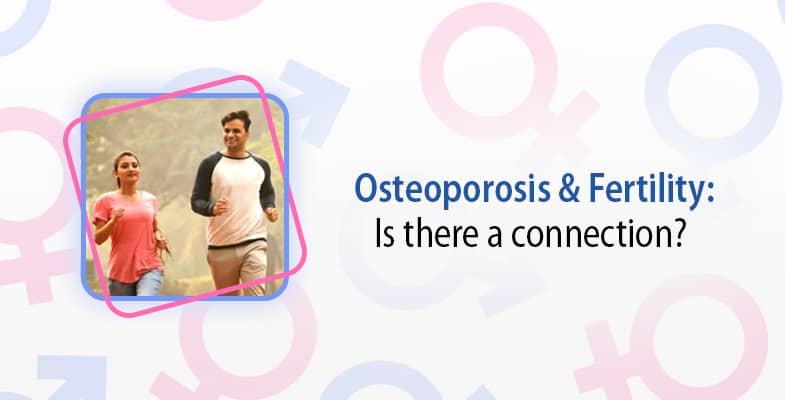
Osteoporosis and osteopenia are conditions where the bone structure is impacted by low bone mass or density, leading to brittle bones and a heightened risk of fractures.
Does osteoporosis affect fertility?
# Broadly speaking, osteoporosis doesn’t directly lead to infertility. However, there could be some indirect linkages. Pregnant women often experience increased calcium mobilization and bone resorption towards the later stages of pregnancy, which could sometimes lead to osteoporosis and fractures, more so among young women.
# Also, nearly all women with premature ovarian failure triggered by the inadequacy of estrogen, are impacted by osteoporosis. Still, pregnancy-linked osteoporosis remains a rare condition.
# In men, osteoporosis is often associated with low levels of testosterone, which affects sex drive and can lead to erectile dysfunction as well as low sperm count, rendering conception difficult.
# The process of decrease in bone mass density begins earlier among women than men, which is often attributed to vitamin deficiencies, lack of exposure to the sun, multiple pregnancies, less exercise, etc. Also, women who run the risk of early menopause due to some genetic reasons or otherwise, are more prone to osteoporosis.
# Although osteoporosis in itself doesn’t impact fertility, a severe condition can sometimes lead to spine or hip fractures during pregnancy.
# Sometimes, the doctor might advise a C-section to avert pelvic fractures during delivery.
# Women having a low reserve of eggs in early life are also more susceptible to osteoporosis. Vitamin D deficiency can affect fertility too by affecting egg quality.
Are infertile men more at risk of osteoporosis?
# Doctors opine male infertility is responsible for around 60% of infertility cases, and the problems could be precipitated by diseases like osteoporosis and diabetes.
# Male infertility is often linked to low testosterone levels, which doesn’t only impact fertility, but metabolism, bone density and energy levels as well.
# Endocrinologists have found that around one-third of men who find it difficult to conceive have an elevated risk of diabetes and osteoporosis.
# Low levels of testosterone might hasten bone breakdown, leading to a lower bone density.
How can you keep your bones strong to keep osteoporosis at bay?
# Have a calcium-rich diet including milk, curd and other milk products, fish, egg yolk, etc.
# Take a calcium supplement during pregnancy and after childbirth
# Stick to a mild exercise regimen like walking and mild lifting to improve bone quality and balance
# Your doctor might prescribe medication including hormonal treatment to prevent osteoporosis
# Check your vitamin D levels and bone mass density, more so if you have a history of injuries
# Quit smoking now
# Address vitamin and mineral deficiencies
# Practice yoga to improve bone health and posture
While it should be safe to plan a pregnancy even with osteoporosis, if the condition is really severe, it’s wiser to seek a specialist’s advice, and at times, surrogacy or adoption might be suggested. More often than not though, the prognosis is positive and the issue can be resolved in consultation with your doctor.


